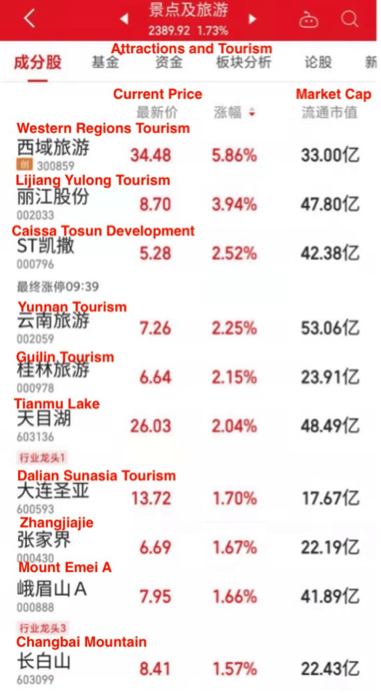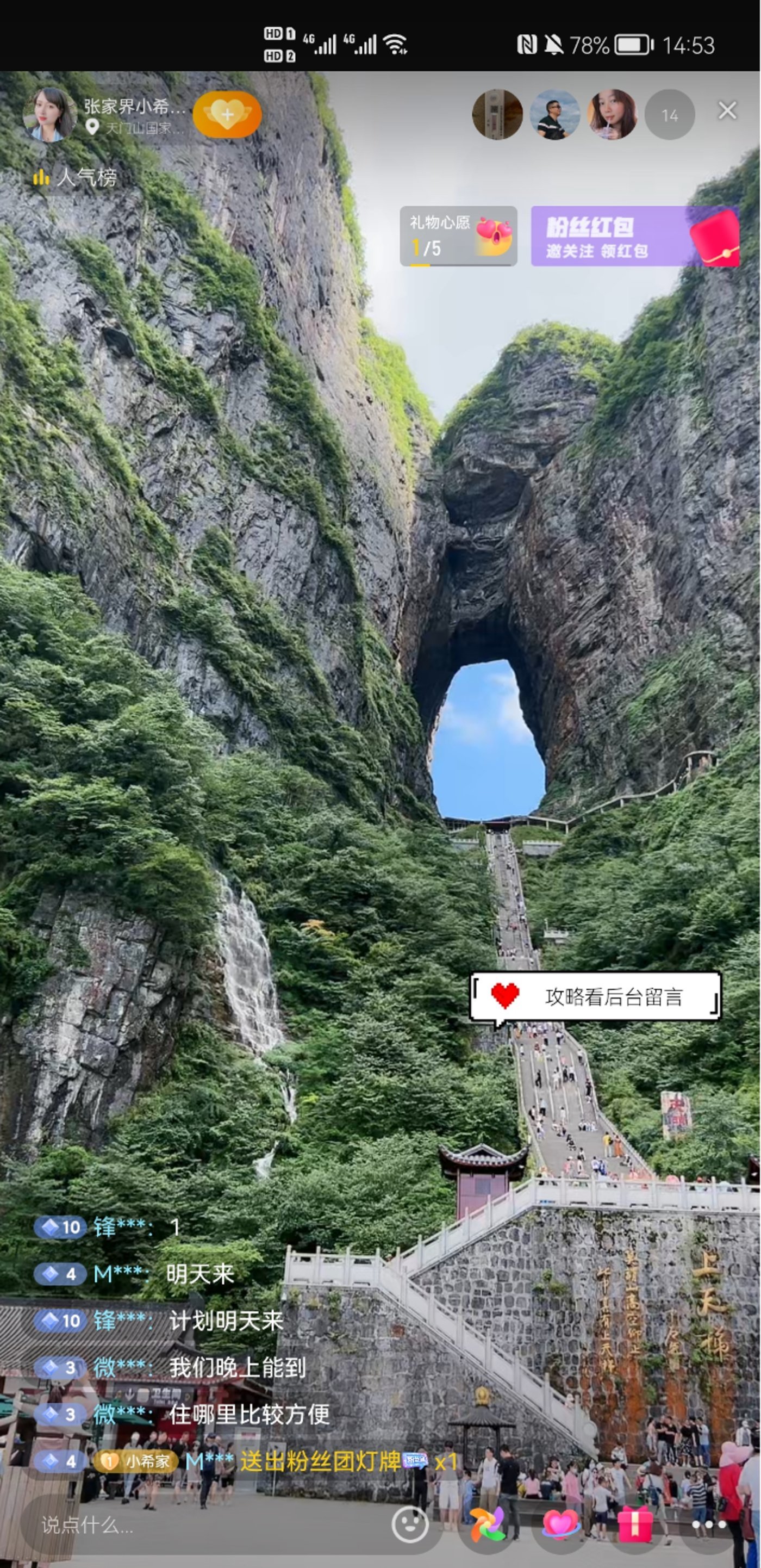Beijing, July 13 (TMTPOST) – China’s national authorities have decided to monitor seven days of citizens’ travel history, down from the previously 14 days, to facilitate intercity movement amid the COVID-19 pandemic.
Chinese tourism stocks rallied immediately as this policy adjustment was likely to boost domestic tourism.

Credit: TMTPost
This was the second time that the government modified mandatory information shown on digital travel passes on the cellphone, or itinerary cards. Last month, the asterisk mark, which indicated someone had travelled to cities with areas listed as medium or high risks, was removed. Searches for popular tourist destinations on travel platforms surged within half an hour after the Ministry of Industry and Information Technology announced such change on July 8. Air ticket bookings during the following weekend increased by 26 percent compared with the previous one, according to one of China’s largest travel booking site Qunar. And July 4 saw the highest volume of this year, surpassing the same day in 2019, the year before the onset of the COVID-19 pandemic.
Apart from adjustments on digital travel passes, the national government has also implemented other measures to restart tourism after a lull due to lockdowns and other travel restrictions. Travel agencies can now resume selling tickets for special trains for the purpose of tourism, as the Ministry of Culture and Tourism announced on July 7.
Meanwhile, provincial and municipal governments started a race in stimulating the tourism sector.. Universal Beijing Resort reopened to the public on June 25, after being closed for about two months in the wake of an outbreak in Beijing. And five days later, Shanghai Disney Resort welcomed its first group of visitors in a few months. On top of that, Beijing handed out consumption coupons, which valued over 30 million yuan ($4.5 million), for accommodation reservation in the suburbs.
Due to such changes, tourism in China is gradually picking up this summer. Hotel reservations in June have exceeded that of the same period of 2021, according to Qunar. About 1.4 million trips ended up in southwestern city Dali in Yunnan province from June 19 through July 6, which was a 17 percent year-on-year increase, local media reported.
“I am optimistic about the tourism market in July and August. Three to four thousand people visited the Three Pagodas per day, which was much higher than before,” a staff member of Dali Tourism Group told local TV station.
The series of policy modifications came ahead of summer vacations, a peak season for domestic travel. The clock was ticking for policy makers as the next window of opportunity would open during the National Day holidays, less than three months from now.
Holiday seasons have been proved as a perfect timing for tourism recovery. The three-day Dragon Boat Festival holiday ending on June 25 saw about 80 million domestic tourist trips, 87 percent of the same period in 2019, according to the Ministry of Culture and Tourism. And revenues of those trips reached about 26 billion yuan ($3.85 billion), 65.6 percent of that in 2019. Such a boost followed China’s decision in May to allow travel agencies to organize intercity group travels.
Optimism has thus been rising among tourism practitioners, most of whom lost their jobs during the pandemic. According to Guojialvye.com, among the 752 people surveyed, 41.9 percent were currently unemployed. And of those who still had a job, only 16.5 percent never experienced unemployment. However, most of them belonged to the low-income group with an average monthly income of less than 3,000 yuan ($445).
The tourism practitioners who survived switched to other jobs to make a living, such as insurance sales agents, live streamers and customer service staff. These choices could only be stopgaps, as they treated only the symptoms but not the cause. That was why they were even more excited about the long-awaited recovery.

Xiaoxi, a tour guide with eight years of experience, was live-streaming in Zhangjiajie, a tourist attraction where sci-fi movie Avatar was filmed.
“I’ve been quite busy recently. The tourism industry seems to be recovering, as everyone can’t wait to have fun,”one travel agency staff member posted on her social media account.
However, many netizens didn’t’ share the same optimism. With the current zero-COVID strategy in place, uncertainties from the outbreak still loom large. 107 new cases were confirmed on July 11, scattering across the country. Once there is a new outbreak in any city or province, they worried that the local government would tighten up preventative measures, despite tourism-encouraging policies. “The tourism industry will boom…in 97 years,” one said.
They believed that the key lies in easing compulsory quarantine rules and reducing unemployment. “Nothing can rebound if our jobs do not rebound,” said another.
(This article is written by Wang Xiaozhang based on the Chinese article )
更多精彩内容,关注钛媒体微信号(ID:taimeiti),或者下载钛媒体App
相关:
爱豆古装剧“秀人演古装剧”。看到这6个字多少人应激了(胡子)刻板印象啥的还不上个写三天三夜?毕竟“拉跨”是基本的形容词,“秀(人)演(员)有壁”是第一感觉。但可能正因为橘刻板印象太重,看剧时就很容易被打脸……..
谷歌YouTube TV成为美国最大的直播流媒体服务 用户量超500万IT之家 7月13日消息,Netflix、Disney+和其他流媒体服务在过去几年中大受欢迎,这一切都归功于疫情大流行。虽然它们的增长现在正在放缓,但按需服务是内容消费的未来。不过,仍然有不少人喜欢观看直播电视,而不..
